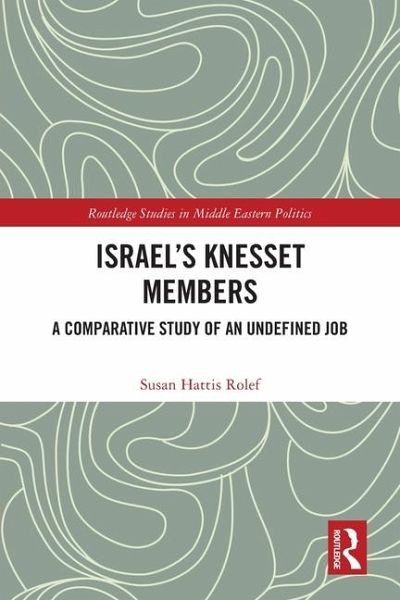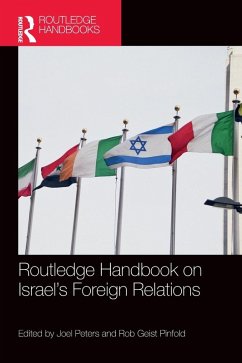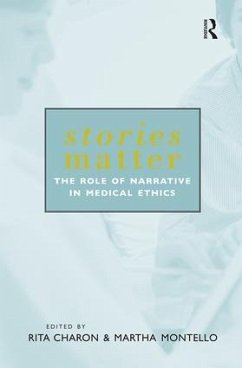
Israel's Knesset Members
A Comparative Study of an Undefined Job
Versandkostenfrei!
Versandfertig in 6-10 Tagen
45,99 €
inkl. MwSt.
Weitere Ausgaben:

PAYBACK Punkte
23 °P sammeln!
Taking Members of the Israeli Knesset (MKs) as a case study, this book offers a comparative analysis of the various roles performed by Members of Parliament (MPs) within the framework of their job in democracies around the world.Based on the author's experience of working in and for the Knesset, from 1977 to 2010, this book questions the lack of a comprehensive job description not only for MKs but also for similar roles in parliamentary democracies globally. The author finds that a serious perusal of materials dealing with the job's various components - in the Israeli case, for example, basic ...
Taking Members of the Israeli Knesset (MKs) as a case study, this book offers a comparative analysis of the various roles performed by Members of Parliament (MPs) within the framework of their job in democracies around the world.
Based on the author's experience of working in and for the Knesset, from 1977 to 2010, this book questions the lack of a comprehensive job description not only for MKs but also for similar roles in parliamentary democracies globally. The author finds that a serious perusal of materials dealing with the job's various components - in the Israeli case, for example, basic laws, the Knesset Rules of Procedure, the Rules of Ethics for MKs, minutes of the Knesset Plenum and Committees and so forth - presents an almost complete picture of the MK's job that like pieces in a jigsaw puzzle merely need be assembled together. Finding the job of MPs in general, and of MKs specifically, definable, this book argues that it ought to be defined considering the centrality of this role for a democracy's functioning.
This innovative book will not only prove useful for scholars of Israeli governance and legislation but will also be of interest to scholars of parliamentarism and comparative legislative politics in general.
Based on the author's experience of working in and for the Knesset, from 1977 to 2010, this book questions the lack of a comprehensive job description not only for MKs but also for similar roles in parliamentary democracies globally. The author finds that a serious perusal of materials dealing with the job's various components - in the Israeli case, for example, basic laws, the Knesset Rules of Procedure, the Rules of Ethics for MKs, minutes of the Knesset Plenum and Committees and so forth - presents an almost complete picture of the MK's job that like pieces in a jigsaw puzzle merely need be assembled together. Finding the job of MPs in general, and of MKs specifically, definable, this book argues that it ought to be defined considering the centrality of this role for a democracy's functioning.
This innovative book will not only prove useful for scholars of Israeli governance and legislation but will also be of interest to scholars of parliamentarism and comparative legislative politics in general.














